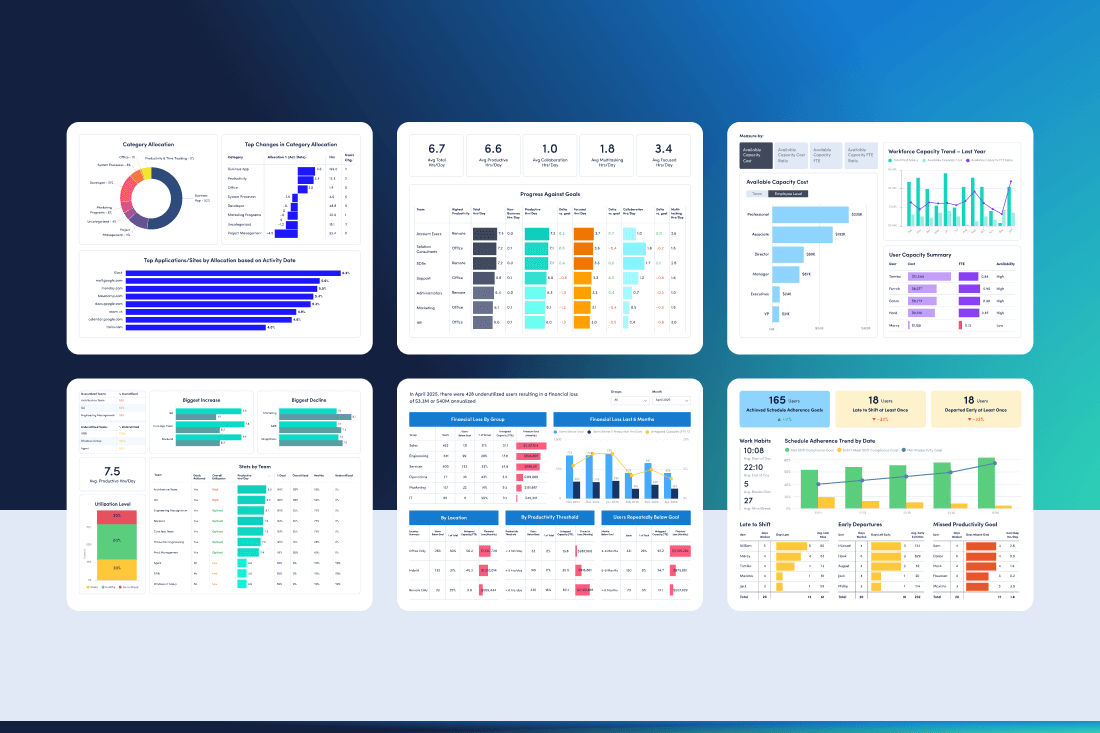Wondering if giving an employee a raise could motivate them to work harder and boost productivity? The short answer is “yes.” Several studies indicate a direct relationship between wages and employee productivity.
If you want the longer answer — including recommendations for improving productivity at your organization — keep reading for a more in-depth look at this important business issue.
The importance of high productivity for businesses
Organizations of all sizes are doubling down on efforts to improve employee productivity — for good reason. For starters, the most productive companies experience 30-50% higher operating margins than others. They grow faster, innovate more and attract top talent. But profitability isn’t the only benefit. Customer satisfaction, employee engagement and retention all go up as a result of increased productivity. And because people get more done in less time, highly productive companies also have lower operational expenses.
Still, the question remains: What leads to increased productivity? While there are many proven strategies, many business leaders believe higher wages hold the key.
What research says about the link between wages and productivity
Although it’s still a relatively new area of research, several studies show a clear connection between higher pay and productivity. Here are a few examples.
Finding #1: Higher wages increase commitment
Some executives say pay increases cause employees to feel more attached to their employers. They’re more productive because they want to keep their higher paying jobs. But does this actually happen? To find out, Kellogg researchers analyzed a “massive data set” of worker productivity at a U.S. retailer with over 40,000 salespeople.
The study involved raising the minimum wage for employees, with additional opportunities for performance-based compensation. The result? Employees not only worked harder per hour, but sold 4.5% more goods. As one researcher put it: “It partially pays for itself because you get workers who are more productive and more attached to the firm.”
Finding #2: Wage increases boost motivation
Kellog professors aren’t the only ones studying this issue. Experts from Boston University and Johns Hopkins Carey Business School also weighed in when Amazon made headlines back in 2018. At the time, executives decided to voluntarily boost pay for Amazon employees, increasing the hourly wage to $15 at a time when the federal minimum was less than half that amount.
While some viewed it as a curious move, researchers explained how and why this practice helps companies increase workplace productivity. Put simply, paying wages above the market rate motivates employees because they have more to lose. They need to do good work if they want to make good money. They’re not likely to find another job with an equivalent salary elsewhere.
Finding #3: Pay raises encourage reciprocation
In his classic bestselling book, psychologist Robert Cialdini explains that people naturally tend to give back to those who have already given to them. This principle, called reciprocity, is often used in the context of sales and marketing. But it also applies to wage growth and productivity.
In one experiment involving 266 workers, researchers found that “gifting” employees with unexpected pay raises is just as effective as hiring more people. The reason? Employees respond by working even harder. Because they’re grateful for the gift, they pay it back by becoming more productive.
Should you raise wages to increase productivity at your organization?
Not all productivity growth is the result of pay increases. And compensation is far from the only method for boosting employee performance. So how do you know if it’s time to consider this strategy for your workforce? It might be time to raise wages if:
- You want to improve well-being: Higher wages help reduce stress by providing more financial stability, allowing employees to stay focused at work.
- You’re experiencing high turnover: Higher wages increase employee retention, lowering your recruiting and onboarding costs.
- Your workforce is small: If a recent reorganization means fewer employees are carrying heavier workloads, higher wages will help motivate them to stay productive.
- You want to strengthen your company culture: Positive workplaces are defined by competitive pay, which helps you attract and retain high-performing employees.
How much to increase wages is up to you. Do your research to determine what’s reasonable for your industry, company size and other relevant factors.
Alternative methods to increase employee productivity
Increasing wages isn’t the only way to boost productivity. Here are several other methods to try:
- Use productivity management software: Measuring productivity empowers you to build policies around where, when and how people work best.
- Eliminate unnecessary meetings: Getting rid of unnecessary meetings prevents breaks in focus time, and gives employees time back to their day.
- Explore flexible work: Remote and hybrid work models make it possible for employees to work when and where they’re most productive.
- Focus on well-being: Many employees double or triple their productivity when they’re well rested and able to maintain a positive work-life balance.
Measure and increase productivity with ActivTrak
Understanding the relationship between wages and productivity is just the start. With ActivTrak’s productivity management software, you’ll gain deeper insights into how your employees get work done. It’s the fastest, simplest way to assess employee productivity and make informed decisions to enhance your team’s performance.
Join more than 9,500 organizations who already use ActivTrak by signing up for your free account today. And if you’d like more inside tips for boosting productivity, schedule a demo to meet with one of our experienced productivity experts.





